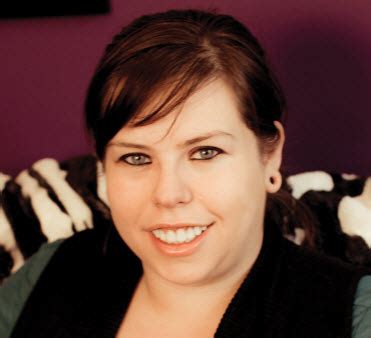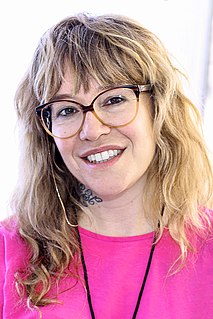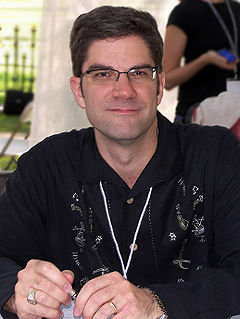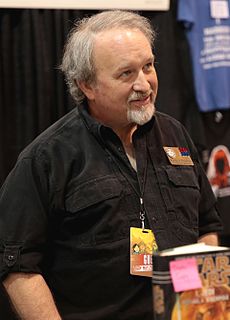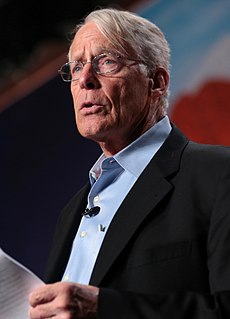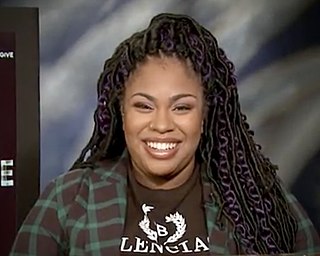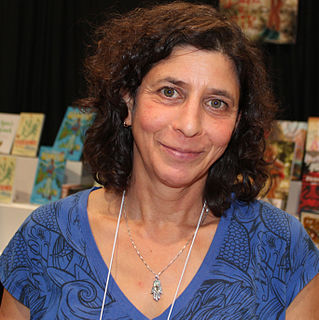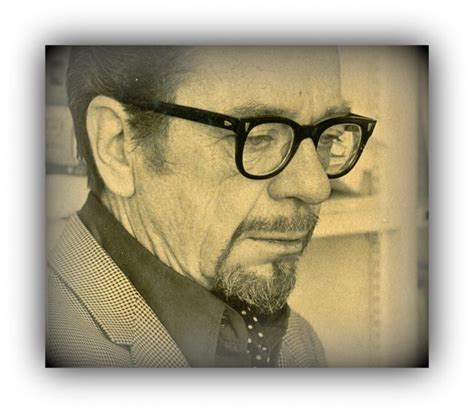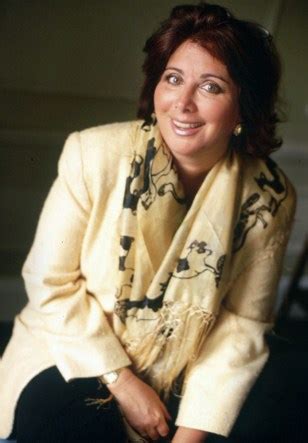Top 995 Desktop Publishing Quotes & Sayings - Page 14
Explore popular Desktop Publishing quotes.
Last updated on December 4, 2024.
Determining the value of individual texts has been an ideological scuffle in literary criticism for centuries: but the environmental cost of printing them hauls this dispute from the ivory tower into day-to-day decision-making. Is it right to write? The publishing industry is slowly beginning to commit to using sustainably harvested trees.
Those of us who know the transporting wonder of a reading life know that it little matters where we are when we talk about books or meet authors or bemoan the state of publishing because when we read, we are always inside, sheltered in that interior room, that clean, well-lighted, timeless place that is the written word.
I've been dreaming about having a press forever, like the '90s. I've always known so many great writers who aren't as connected to the publishing world as they should be, and I have the energy and the enthusiasm to sort of gather and promote people, so I've always thought someday I might embark on a big project like that.
Traditional publishers will be dominant, and they should be because they really do assure quality. But eBooks, which are huge already, are going to eclipse everything. They will save traditional publishing the way DVDs saved movie studios (for a while) and they'll greatly expand the number of readers.
I went to Wellesley College, and it was really hard for me to get a job after I graduated. I would go into places where I would not see any black people at all in Boston - like, zero. And then in publishing in New York City, it was pretty much the same. I knew that it wasn't about the value of my work.
As it's related to publishing, I think magazines really benefit from having a staff with a range of different perspectives and cultural references so that any reader can feel like there is someone on the masthead they can relate to, someone they can trust to speak up for them. It's great to see that idea being embraced more and more.
When things are digital, they're all 1's and zero's, and so they commingle in ways we didn't anticipate and you could do things that were not like publishing or television, or computers, but were some intersection of those and that got known to be convergence, so between the switching, or trading of places and the convergence, you have today's media.
Corporations that are turning over these huge profits can own everything: the media, the universities, the mines, the weapons industry, insurance hospitals, drug companies, non-governmental organisations. They can buy judges, journalists, politicians, publishing houses, television stations, bookshops and even activists. This kind of monopoly, this cross-ownership of businesses, has to stop.
Keep your head down, avoid all the distractions of being a writer today?all the shifts in the business, all the drama, all the debating about where publishing is going?and write the best story that you can. It sounds a bit glib, but I think this is advice a lot of people are having trouble following right now. It is so hard to focus. But that is the single key to success.
People ask me what my predictions are for publishing and how digital is changing things and I tell them my only real prediction is that is it's all changing. Amazon, Google and all of those things probably aren't the enemy. The enemy right now is simply refusing to understand that the world is changing.
When you start, the world of publishing seems like a great cathedral citadel of talent, resisting attempts to let you inside. It isn't like that at all. It may be more difficult now, and take longer than when I started to write, but there's a great, empty warehouse out there looking for simple talent.
There are a lot of distractions when you're in creative industries like publishing or fashion or media, and it's a real blessing to have witnessed some of those up close at a young age. I think when you get past the glamour, that's when you get to the good stuff - the stuff that really feeds your soul and enriches you as a person.
It's true that in Romanian I feel more relaxed, as if I'm wearing slippers...but I came to this decision primarily for other reasons: I had only published three collections of texts in Romania. Even before my exile I was prohibited from publishing, I was ignored and forgotten. In going back to Romanian I had the opportunity to take my revenge.
Before the widespread rise of the Internet and easy publishing tools, influence was largely in the hands of those who could reach the widest audience, the people with printing presses or access to a wide audience on television or radio, all one-way mediums that concentrated power in the hands of the few.
My grandfather once ventured upon publishing a volume of hymns. I never heard anyone speak in their favour or argue that they ought to have been sung in the congregation. In that volume, he promised a second if the first should prove acceptable. We forgive him the first collection because he did not inflict another.
I would say that the Pentagon Papers case of 1971 - in which the government tried to block the 'The New York Times' and 'The Washington Post' and other newspapers from publishing papers that they obtained from a secret study of how we got involved in the war in Vietnam - that is probably the most important case.
When I was seven or eight years old, I began to read the science-fiction magazines that were brought by guests into my grandparents' boarding house in Waukegan, Illinois. Those were the years when Hugo Gernsback was publishing 'Amazing Stories,' with vivid, appallingly imaginative cover paintings that fed my hungry imagination.
It was something that hopefully sparked a few people to do similar things down the road and will keep a certain flavor of magazine publishing alive. I have to say at the end of the day I am glad not to be spending all day, every day in the High Times office, you know, covering this particular angle of life.
You have to find a way of shutting the future out and focusing on the writing. One of the problems I'll have with writing my second book is getting back into a situation where I think about the words on the page rather than the publishing industry, or success, or any kind of readership I may now have. I'll have to do what writers do, which is focus on the story and nothing else.
Hence, when some members of the Iranian diaspora, especially women at the moment, use different tropes including the trope of the veil and the issue of gender to construct an image of oppression or to describe the 'silenced' Iranian woman, western intellectuals, policymakers, and publishing houses are all quick to introduce them as presenters of the authentic Iranian experience.
There are three difficulties in authorship;-to write any thing worth the publishing-to find honest men to publish it -and to get sensible men to read it. Literature has now become a game; in which the Booksellers are the Kings; The Critics the Knaves; the Public, the Pack; and the poor Author, the mere table, or the Thing played upon.
Amazon Pages and Amazon Upgrade leverage Amazon's existing 'Search Inside the Book' technology to give customers unusual flexibility in how they buy and read books, .. In collaboration with our publishing partners, we're working hard to make the world's books instantly accessible anytime and anywhere.
Web publishing can create common spaces; it all depends on how we, the readers and sometimes the producers, react to technological change. If we sort ourselves into narrow groups, common spaces will be in big trouble. But there's no reason not to have common spaces on the Internet. There are lots of them out there.
I wanted to be involved with literature. I certainly wasn't going to be able to write for a living, and I didn't have enough confidence in my talent to think that I should be just doing that. Publishing seemed like fun to me - to be involved with writers. And it did turn out to be. I thought I'd try it, and I'm still trying it, 40 years later.
Publishing is no longer simply a matter of picking worthy manuscripts and putting them on offer. It is now as important to market books properly, to work with the bookstore chains to getterms, co-op advertising, and the like. The difficulty is that publishers who can market are most often not the publishers with worthy lists.

